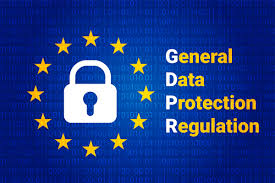Few months ago, dozens of emails overwhelmed our mail boxes informing us about the GDPR. Many companies informed us that they will start the EU General Data Protection regulation.
 Alike these companies, all translation companies or freelance translators should follow the GDPR.
Alike these companies, all translation companies or freelance translators should follow the GDPR.
What is GDPR and what need to know freelance translators or translation agencies about GDPR?
GDPR is the General Data Protection Regulation. It is designed to harmonize and comply with the laws of personal data privacy across Europe.
This regulation was in the process of preparation for four years. Finally it was approved by the European Commission on April 14 2016. After approval there was a striking silence all over the Europe, but with the enforcement date set on 25 May 2018, companies worked considerably to comply with the requirements of the regulation.
The GDPR refers not only to the territory of the European Union. It may also extend outside of the European borders. The regulation applies not only to companies operating in Europe selling goods or services (paid or free) to EU citizens, but also to companies that are operating outside, but providing services to Europeans.
In fact, this means that companies inside and outside the EU that offer or sell goods or services to EU citizens (paid or not) should apply the principles.
How the GDPR is used. Until now, the companies have been forced to include long and boring terms and conditions in their websites. These agreements are always full of legal and unintelligible requirements, with rights and obligations of service providers and other parties. The GDPR finally puts an end to that.
After the adoption of the Data Protection Regulation, the inclusion of these agreements will cease, instead there will be clear and understandable forms that can be accepted or rejected by the site's visitors. Visitors of the websites, giving their consent, get the access to their personal information that can be maintained within the scope of services provided.
What data does GDPR contain? These are usually personal data: name, picture, e-mail address, bank details, social commentary, medical information or IP address of the person concerned.
How to behave if you are a translator or a translation service? As a freelance translator or translation agency you are basically a processor. The actual impact of the GDPR on your translation business differs greatly. If you are a technical translator or literary translator, chances are that you do not process the personal data of the subjects. In that case compliance should not be a heavy burden. However, if you are a medical translator for instance, translating personal health records, or if you are a sworn translator, translating certificates and other personal stuff, you have somewhat more work to do.
GDPR is not a purely requirement; it should be followed strictly by understanding how to accept data, maintain and inform users operating within your service. If you violate the GDPR's requirements, you have to pay 4% of your annual earnings as a violation. The amount may increase up to € 20 million if a gross violation took place and the user data was used without the consent of the latter.
Thus, GDPR is no joke; it is a regulation that should be followed.
